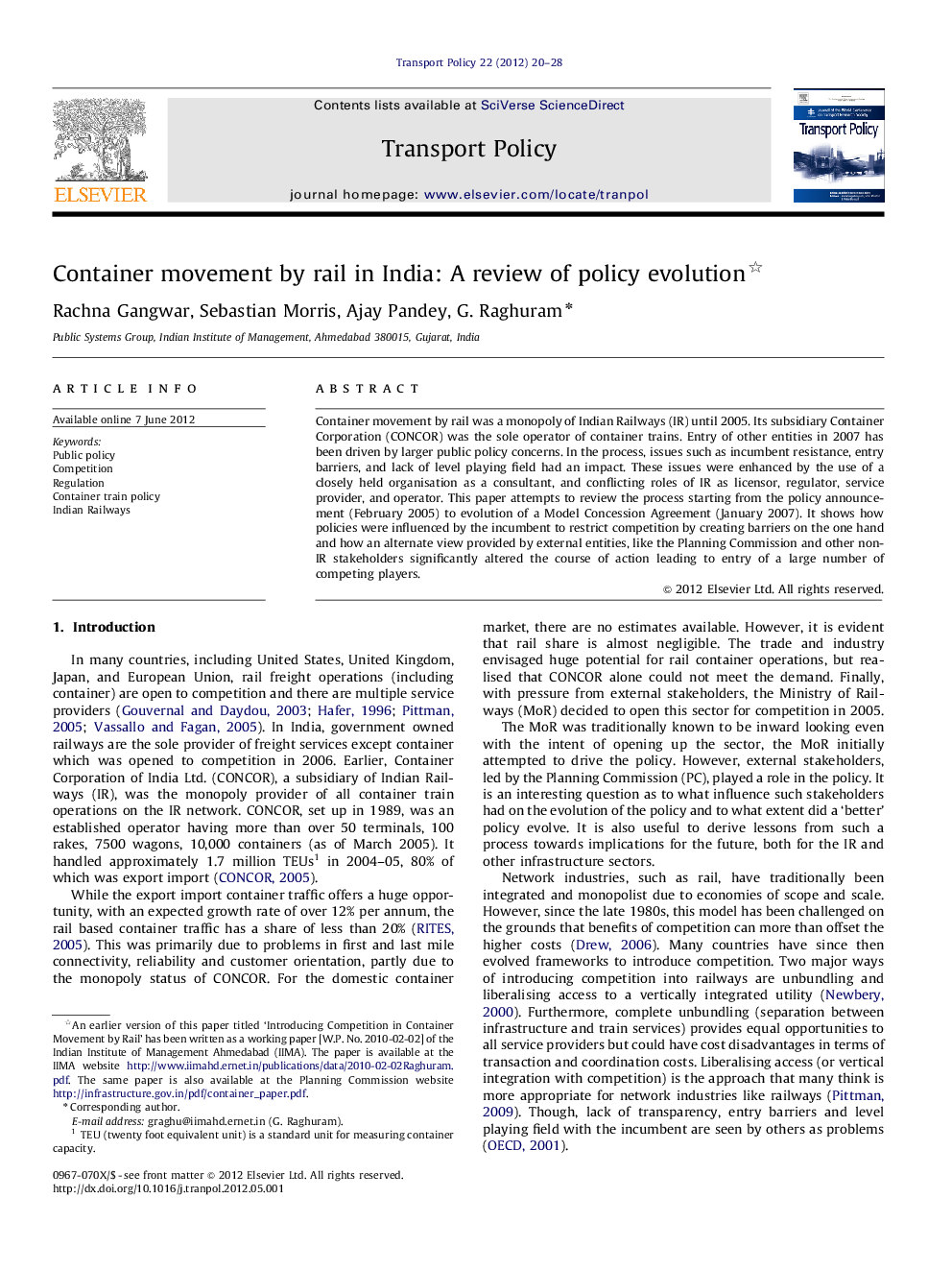| Article ID | Journal | Published Year | Pages | File Type |
|---|---|---|---|---|
| 1065236 | Transport Policy | 2012 | 9 Pages |
Container movement by rail was a monopoly of Indian Railways (IR) until 2005. Its subsidiary Container Corporation (CONCOR) was the sole operator of container trains. Entry of other entities in 2007 has been driven by larger public policy concerns. In the process, issues such as incumbent resistance, entry barriers, and lack of level playing field had an impact. These issues were enhanced by the use of a closely held organisation as a consultant, and conflicting roles of IR as licensor, regulator, service provider, and operator. This paper attempts to review the process starting from the policy announcement (February 2005) to evolution of a Model Concession Agreement (January 2007). It shows how policies were influenced by the incumbent to restrict competition by creating barriers on the one hand and how an alternate view provided by external entities, like the Planning Commission and other non-IR stakeholders significantly altered the course of action leading to entry of a large number of competing players.
► We review the process of container rail policy evolution of Indian railways. ► The process was largely driven by the influence of incumbent. ► An external group could significantly alter the policy in favour of new entrants. ► The final policy attracted many players but issues still remain.
